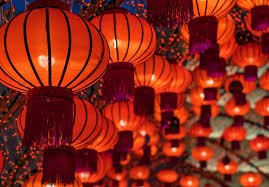China is renowned for its vibrant festivals, offering visitors a deep dive into its rich culture and traditions. From ancient celebrations to modern-day events, there’s something for every traveler, no matter the season. This guide highlights some of the most iconic festivals throughout the year, ensuring you experience what China offers.
When traveling in China, staying connected is key. Using a china tourist esim can ensure reliable internet access, helping you stay updated on festival schedules and explore without hassle.
Spring Festivals: Celebrating New Beginnings
Spring is one of the most festive times of the year in China, and it marks the beginning of the lunar calendar. The Chinese New Year (Spring Festival) is the most significant festival during this season, which falls between January and February, depending on the lunar cycle. This grand celebration includes fireworks, dragon dances, and family reunions. It is a time to honor ancestors, pray for good fortune, and wish for a prosperous year ahead. Across the country, cities like Beijing, Shanghai, and Xi’an light up with lanterns, and the streets are filled with markets selling traditional foods like dumplings and rice cakes.
One of the Chinese New Year celebrations highlights is the Lantern Festival, which marks the end of the New Year festivities. Held on the 15th day of the lunar new year, this festival is known for its stunning displays of various shapes and sizes of lanterns. Visitors can enjoy lantern displays, watch traditional performances, and indulge in sweet glutinous rice balls, known as tangyuan. The Chinese New Year is a time for celebration and an opportunity to witness centuries-old traditions still very much alive in modern-day China.
READ MORE : Creative Ways to Incorporate Golf Into Social Gatherings
Summer Festivals: A Time for Fun and Reflection
As summer rolls around, China’s festivals shift towards more relaxed and reflective events, emphasizing nature, food, and historical traditions. The Dragon Boat Festival (Duanwu Festival), celebrated in June, is one of the most well-known summer festivals. This festival honors the ancient poet Qu Yuan and is famous for its exhilarating dragon boat races. Teams paddle through rivers and lakes in beautifully decorated boats while spectators cheer on the sidelines.
Aside from the dragon boat races, the festival is also famous for the delicious zongzi (sticky rice wrapped in bamboo leaves) that families prepare and share during this time. The festival’s energy is infectious, and if you visit China during this season, you’ll get the chance to see people come together to enjoy the races and participate in various local events.
Another significant event during the summer is the Qingming Festival, celebrated in early April. Known as Tomb Sweeping Day, this is a more somber occasion when families honor their ancestors by cleaning their tombs and making offerings. Although the festival is quieter than others, it’s an important part of Chinese culture, reflecting the reverence for family and ancestors. Many people also enjoy outings in the countryside, appreciating the springtime beauty of nature.
Autumn Festivals: Celebrating Harvest and Unity
As the harvest season begins, China celebrates with festivals emphasizing family unity and appreciation for nature’s abundance. The Mid-Autumn Festival (Zhongqiu Festival), held in September or October, is one of the most beloved. It’s a time for families to gather and appreciate the full moon, a symbol of unity. People enjoy mooncakes, a traditional pastry filled with sweet or savory fillings, and admire the moon’s beauty. The festival’s cultural significance is deep-rooted in Chinese history, making it a must-visit if you’re in the country during autumn.
Winter Festivals: Reflecting on the Past and Welcoming the Future
Winter in China brings a festive atmosphere with events steeped in tradition and often feature elaborate displays of culture. One of the most notable winter festivals is the Ice and Snow Festival in Harbin, typically held in January. The city transforms into a winter wonderland, with massive ice sculptures and light displays that are breathtaking to behold. This festival showcases the artistry of ice carving and draws visitors worldwide to marvel at the incredible sculptures.
Another winter event worth experiencing is the Laba Festival, typically in December. This festival marks the beginning of the Chinese New Year preparations and is often celebrated with the traditional porridge called Laba congee, made with various grains, beans, and fruits. It’s a time for people to relax, reflect, and prepare for the upcoming year.
Conclusion
From the vibrant festivities of the Chinese New Year to the serene beauty of the Mid-Autumn Festival, China’s year-round celebrations offer a rich cultural experience for every traveler. By staying connected with a China tourist esim, you can easily navigate through cities, enjoy festivals, and immerse yourself in local traditions without missing a beat. Whether you’re visiting in the spring, summer, autumn, or winter, there’s always a festival in China that will make your trip unforgettable.
